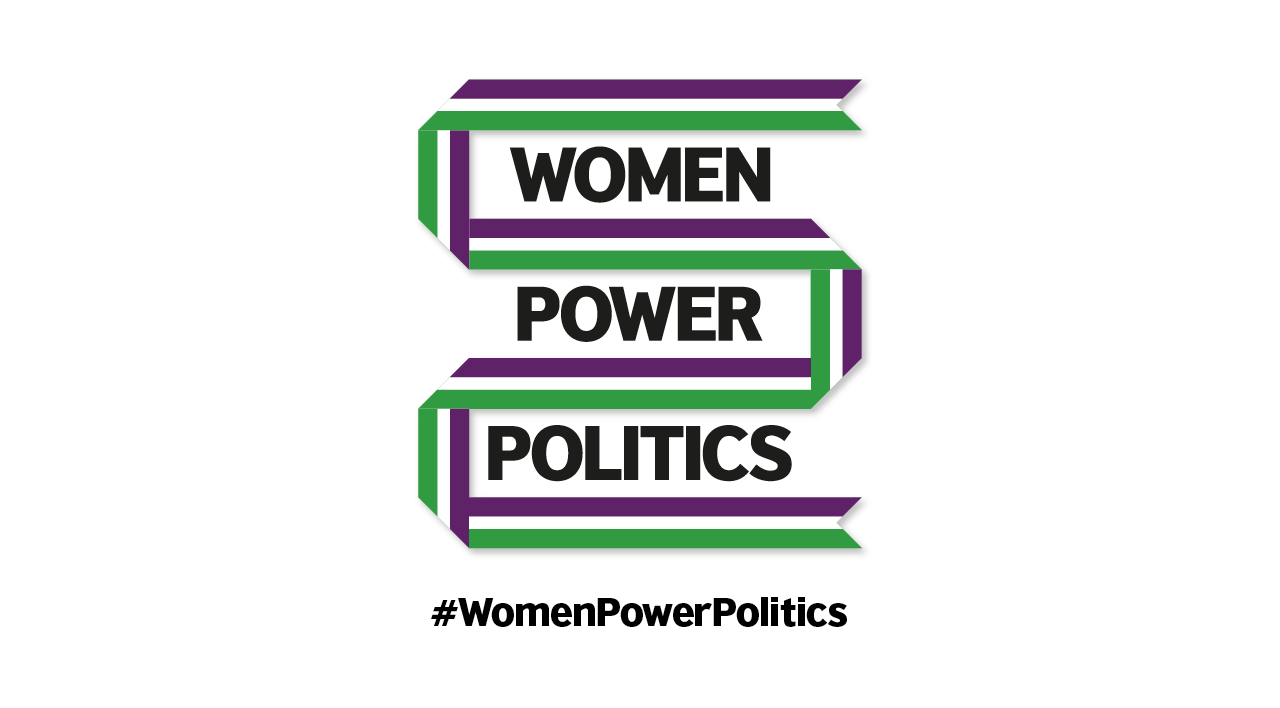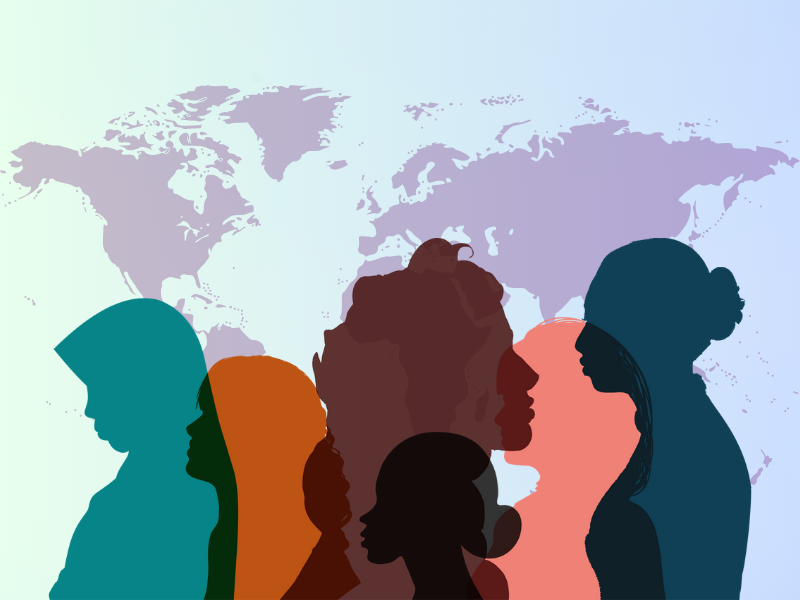
Women’s leadership is crucial for a thriving society. Women leaders tend to be collaborative, empathetic, and focus on the bigger picture. This translates into policies that support women’s advancement and benefit them. Women’s leadership refers to strong female leaders who are open minded, empathetic and take responsibility which tend to consider both big and small perspectives and look for better opportunities which in turn have a great deal in initiating programs and policies that support women in leadership roles.
Thus, Women’s Leadership and Political Participation: Empowering Voices is a fundamental requirement for gender equality and democracy which foster engagement in public decision making which includes participatory, responsive, equitable and inclusive and ensure better accountability to women which in turn bring a long-term impact overall to mindset and perspective in people.
Historical Struggles and Progress
For centuries, patriarchal structures excluded women from political spheres. However, a long and determined fight for suffrage and equal political rights has yielded significant progress. A key milestone was the Seneca Falls Convention in 1848, demanding women’s suffrage alongside social reforms. The early 20th century saw the culmination of these efforts with the hard-won right to vote. In the United States, for example, the 19th Amendment secured suffrage for women in 1920.
The fight has since broadened to address systemic barriers. The Convention on the Elimination of All Forms of Discrimination Against Women (CEDAW), adopted in 1979, is a landmark international agreement requiring countries to eliminate gender discrimination in political and public life. Further momentum came from the 1995 Beijing Platform for Action, a global framework urging governments to empower women in all spheres, including political participation.
Why Women’s Political Participation Matters
Gender equality in political representation is essential for a just and democratic society. Women bring diverse perspectives and priorities to policy-making, leading to more inclusive and equitable outcomes. Research by UN Women shows a positive correlation between higher female political participation and investment in education, a cornerstone of development. Women leaders are also champions for social justice. Their presence in government challenges gender stereotypes and inspires future generations of women to enter politics. A study by the Peterson Institute for International Economics found that girls with female political role models are more likely to aspire to leadership positions themselves.
Challenges Hobbling Women’s Political Participation
Culturally ingrained social norms often discourage women from seeking leadership roles. Women may face societal pressure to prioritize family responsibilities, while political careers often demand long hours and dedication. A 2019 survey by the Pew Research Center found that 67% of women felt societal expectations were a barrier to entering politics Pew Research Center, Women and Politics (IGIELNIK, 2020).
Gender stereotypes further hinder women’s entry into politics. They may be perceived as less qualified or competent than male candidates. A 2020 study by Rutgers University’s Center for American Women and Politics revealed that 63% of voters held unconscious biases against female candidates, political systems can be discriminatory, with a lack of funding and support networks for women candidates. The threat of violence against women in politics is a chilling reality. This can range from online harassment to physical threats, creating a dangerous environment for women seeking public office. According to a 2021 report by the Inter-Parliamentary Union (IPU), 52% of female politicians worldwide reported experiencing violence or threats in the past year.
Finally, the double burden of work and family responsibilities presents a significant challenge. Women often shoulder a disproportionate share of unpaid care work, leaving them with less time and energy to dedicate to political pursuits. OECD (Organisation for Economic Co-operation and Development) reports that women globally dedicate 13.5 more hours per week to unpaid care work compared to men.
UN Women: Championing Women’s Political Participation
The United Nations Entity for Gender Equality and the Empowerment of Women is a strong advocate for women’s leadership globally. Recognizing that women’s voices are essential for fair policymaking, UN Women champions policies that increase women’s political participation. They provide training and capacity-building programs to equip women with the skills and knowledge needed to run for office. UN Women also leads advocacy campaigns for gender quotas and legislative reforms that remove discriminatory barriers. They partner with governments, civil society organizations, and other international bodies to create a more supportive environment for women in politics.
For example, UN Women has played a key role in supporting women’s political movements in Latin America. They have provided training and resources to women candidates, advocated for legal reforms, and raised awareness about the importance of women’s political participation. A 2020 UN Women report documented a 25% increase in the number of women elected to office in countries where they had partnered with women’s political movements.

UN Women: Empowering Women for Political Participation
The United Nations Entity for Gender Equality and the Empowerment of Women stands as a global champion for women’s leadership in political spheres. Recognizing the critical role women play in shaping a just and equitable society, UN Women spearheads a multi-pronged approach to increase women’s political participation.
Building Capacity and Confidence
UN Women’s programs equip women with the tools and skills they need to thrive in the political arena. Training programs hone their leadership qualities, campaign strategies, and public speaking skills. A 2017 survey by the International Republican Institute found that women candidates who participated in training programs were more likely to win elections. Capacity-building workshops equip them with knowledge about policy development, legislative processes, and effective communication. These programs empower women to confidently navigate the often-challenging world of politics.
Advocacy and Legislative Reform
UN Women doesn’t shy away from advocating for systemic change. They actively campaign for the implementation of gender quotas in parliaments and government bodies. Gender quotas mandate a minimum percentage of seats reserved for women candidates. Research by the World Bank shows a positive correlation between gender quotas and the number of women in parliament. Additionally, UN Women lobbies for legislative reforms that dismantle discriminatory laws and create a more level playing field for women candidates.
Building Alliances for Action
Understanding that change requires collective action, UN Women fosters strong partnerships. They work closely with governments, urging them to adopt policies that promote women’s political participation. Collaboration with civil society organizations allows UN Women to leverage their grassroots networks and mobilize communities in support of women leaders. Partnering with other international organizations creates a united front, advocating for gender equality on a global scale.
Success Stories: Women Rise to the Challenge
UN Women’s tireless efforts have yielded remarkable results across the globe. Here are a few inspiring examples:
Rwanda: Emerging from the devastating genocide, Rwanda committed to women’s empowerment. With UN Women’s support, they implemented a constitutional quota mandating at least 30% female representation in parliament. Rwanda boasts the highest percentage of women parliamentarians globally, at over 60%.
Latin America: A wave of women’s political movements has swept across Latin America. UN Women partnered with these movements, providing training and resources to women candidates. They also advocated for legal reforms that strengthened women’s political rights. This collaborative effort led to a significant increase in the number of women elected to office. A 2020 UN Women report documented a 25% rise in female representation in countries where they partnered with such movements.
Scandinavian Countries: The implementation of gender quotas in countries like Norway, Sweden, and Finland has demonstrably increased women’s political participation. These countries consistently rank at the top for female representation in parliament, proving that quotas can be an effective tool for achieving gender equality in politics.
These success stories offer valuable lessons. Strong political will, coupled with effective legal frameworks and targeted programs, can pave the way for significant progress. UN Women’s collaborative approach, fostering partnerships and amplifying the voices of women’s movements, has been instrumental in driving these positive changes.
Recommendations for a Better Future
To further dismantle barriers to women’s political participation, a multi-faceted approach is crucial.
Political Will and Legal Frameworks: Governments must demonstrate a genuine commitment to gender equality. This translates into enacting and enforcing laws that prohibit gender discrimination in politics and create a level playing field for women candidates.
Public Awareness Campaigns: Societal attitudes play a significant role. Public awareness campaigns are essential to challenge gender stereotypes and promote the importance of women’s leadership. These campaigns can be targeted towards voters, encouraging them to support female candidates, and towards young women, inspiring them to aspire to political leadership.
Men as Allies: Men play a crucial role in promoting gender equality. Engaging men as allies in this fight for equal representation is vital. Educational initiatives and awareness programs can help men understand the importance of women’s voices in politics.
Mentorship and Support Networks: Women leaders often face unique challenges. Continuous support and mentorship programs are essential for their success. These programs can provide guidance, networking opportunities, and a sense of community for women navigating the political landscape.
Conclusion
Women’s leadership is essential for a thriving society. Studies by UN Women and the Peterson Institute for International Economics demonstrate the positive correlation between women’s political participation and policies that benefit all. However, as of 2018, women globally hold only around 23.8% of parliamentary seats. UN Women plays a critical role in bridging this gap. Their multifaceted approach equips women with the skills and confidence to be successful candidates, advocates for legislative reforms, and builds strong partnerships to create a supportive environment. UN Women’s work, exemplified by the success stories in Rwanda, Latin America, and Scandinavia, has demonstrably increased women’s political participation.
To achieve true gender equality and sustainable development, continued efforts are needed. Governments must demonstrate commitment by enacting laws that promote women’s political participation. Public awareness campaigns can dismantle stereotypes and inspire future generations. Men play a vital role as allies, and mentorship programs are essential for supporting women leaders. Together, through collective action from governments, international organizations, and civil society, we can create a world where women’s voices shape a more just and equitable future.
References
2. https://www.unwomen.org/en/what-we-do/leadership-and-political-participation/facts-and-figures
5. https://www.ipu.org/resources/publications/reports/2022-03/women-in-parliament-in-2021
10. https://www.usaid.gov/sites/default/files/2022-05/WiP%20-%20Jordan%20Case%20Study.pdf
12. https://www.unwomen.org/en/partnerships
16. http://archive.ipu.org/wmn-e/classif.htm
18. https://www.unwomen.org/en/what-we-do/leadership-and-political-participation/facts-and-figures
21. https://www.ipu.org/resources/publications/reports/2022-03/women-in-parliament-in-2021
23. https://www.unwomen.org/en
26. https://www.usaid.gov/sites/default/files/2022-05/WiP%20-%20Jordan%20Case%20Study.pdf
28. https://www.unwomen.org/en/partnerships
32. http://archive.ipu.org/wmn-e/classif.html
Other References
- International Republican Institute. (2017). Win With Women: Empowering Women Candidates for Electoral Success.
- Rutgers University’s Center for American Women and Politics. (2020). Still Running in Stilettos: A 2020 Report on Women Candidates and Voters.
- UN Women. (2018). Facts and figures: Women’s leadership and political participation.
- World Bank. (2021). Women in Business and the Law 2021.
- Pew Research Center. (2019). Women and Politics.
- Inter-Parliamentary Union (IPU). (2021). Violence against women politicians: A global analysis.
- Organisation for Economic Co-operation and Development (OECD). (2021). Society at a Glance 2021.
- Peterson Institute for International Economics. (2021). Closing the Gender Gap in Leadership.



